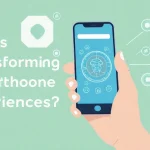Immediate impacts of internet technology advancements on UK daily life
The UK internet technology advancements have notably transformed everyday routines. One immediate impact is the way people connect and communicate. Rapid broadband and mobile internet improvements allow instant messaging, video calls, and social media interactions, making staying in touch with family, friends, and colleagues effortless across distances.
Access to digital services and information has become quicker and more widespread. UK households now use online banking, streaming, e-health consultations, and government portals, simplifying tasks once requiring physical visits. For example, booking appointments or accessing public services online saves time and offers convenience, especially in busy urban settings.
Also to discover : Exploring blockchain jobs: new opportunities in the crypto industry
Businesses in the UK have been early adopters of new technologies, integrating cloud services and remote work tools. This not only boosts productivity but also reshapes work-life balance, allowing for flexible schedules and reduced commuting. Technology trends in the UK show increased demand for smart home devices, reflecting how quickly consumers embrace innovation to improve daily living.
These changes illustrate how advanced internet technology yields immediate and tangible effects, enhancing connectivity, service accessibility, and workplace efficiency in the UK.
Additional reading : What Are the Latest Challenges Facing Online Privacy in the UK?
Key innovations driving change in the UK
The rollout of 5G in UK is a pivotal force transforming digital infrastructure UK-wide. This next-generation connectivity offers significantly faster speeds and lower latency, enabling more reliable communication for both consumers and businesses. The widespread availability of 5G in UK urban and rural areas is boosting sectors like healthcare, manufacturing, and entertainment by supporting real-time data transfer and enhancing mobile experiences.
Parallel to 5G, the expansion of fiber optic broadband UK continues to be a cornerstone of technology innovation UK. Fiber optic networks deliver ultra-fast internet with higher bandwidth and greater stability compared to traditional copper cables. This expansion reduces digital divides between regions, fostering economic growth and supporting a variety of online services effortlessly.
Moreover, advancements in the Internet of Things (IoT) and smart technology integration are accelerating the transformation of homes and industries. These innovations contribute to smarter cities, improved energy management, and increased automation in UK infrastructure. Together, the combined effect of 5G in UK, fiber optic broadband UK, and IoT developments highlight a robust digital future anchored in cutting-edge technology.
Influence on work and remote collaboration
Remote work UK has surged, reshaping how businesses operate. The rise of digital workplaces offers teams flexibility beyond office walls. This shift propels the adoption of online collaboration tools like video conferencing, project management apps, and shared document platforms. These tools facilitate seamless communication and real-time updates, essential in a hybrid environment.
The growth of remote and hybrid working models means employees balance in-office and at-home tasks. Businesses report increased business productivity as workers customize environments, manage time better, and reduce commute stress. However, challenges persist in maintaining engagement and clear communication across dispersed teams.
Moreover, company investment in digital workplaces improves collaboration quality, fostering innovation even remotely. Employee well-being also benefits when hybrid models allow work-life balance, reducing burnout. Ultimately, remote work UK transforms productivity dynamics, proving that digital workplaces aren’t just temporary fixes but strategic enablers for future business success.
Transformation in education and learning experiences
The rise of online education UK has dramatically reshaped how students and teachers interact with knowledge. Virtual learning environments have become a staple, allowing seamless access to courses and materials across geographical barriers. This shift not only broadens educational reach but also offers flexible learning schedules.
Digital classrooms enriched with e-learning tools UK provide engaging multimedia content, real-time feedback, and collaborative opportunities. These platforms empower teachers to tailor lessons to varied student needs, fostering a more personalized experience.
Education technology advancements support more than just interaction; they enable data-driven insights, tracking student progress and pinpointing areas requiring attention. UK institutions demonstrate this through successful case studies, showing improved engagement and performance when integrating such tools.
The continuous growth of education technology advancements ensures that digital classrooms evolve rapidly, incorporating AI tutors, virtual labs, and interactive assessments. These innovations make education more accessible, inclusive, and effective across the UK.
As we embrace these changes, the combination of online education UK and e-learning tools UK creates dynamic, adaptable learning environments that meet modern educational demands.
Advancements in Healthcare Access and Delivery
The rise of telemedicine UK has revolutionised how patients receive care, enabling remote consultations that reduce travel and waiting times. Digital healthcare innovations offer more than convenience; they enhance access, especially for those in rural or underserved areas. Remote patient care has seen significant growth, integrating wearable devices and mobile apps for continuous monitoring.
Health technology benefits extend beyond patient interaction. Healthcare administration now enjoys improved efficiency through digital recordkeeping and streamlined appointment systems. These advancements lessen administrative burdens, allowing medical professionals to focus more on patient care.
Patients report positive experiences with telemedicine UK, appreciating the flexibility and personalised attention despite physical distance. Experts highlight how digital healthcare innovations contribute to better outcomes by facilitating early intervention and continuous monitoring. The UK’s healthcare system is actively embracing these technologies, aiming to balance accessibility with quality.
In summary, the combination of telemedicine UK, remote patient care, and emerging digital healthcare innovations is reshaping healthcare delivery. This transformation not only improves access but also enhances efficiency and patient satisfaction, marking a significant step forward in healthcare services.
Evolving communication, entertainment, and smart homes
The rise of streaming services UK has transformed how people access entertainment. Platforms now offer vast libraries, allowing users to watch shows and movies anytime. This shift aligns with emerging online entertainment trends UK, where on-demand content outpaces traditional TV schedules. The convenience of streaming fuels changing digital lifestyles, as audiences favor personalized viewing experiences.
Simultaneously, smart home devices have become integral to daily routines. From voice-activated assistants to connected thermostats, these technologies enhance comfort and efficiency. Integration of smart systems into homes reflects the broader shift towards automation and connectivity, shaping how people interact both within spaces and with their digital environments.
These advancements influence social dynamics as well. Family interactions now often revolve around shared streaming experiences or managing smart home devices collectively. Socializing includes digital communication alongside physical presence, highlighting new norms in how technology molds community and relationships.
Together, the growth of streaming services UK and widespread adoption of smart home devices illustrate the evolving landscape of entertainment and communication, central to modern digital lifestyles.
Benefits and challenges of rapidly advancing internet technology
Rapid advancements in internet technology deliver significant technology benefits. Enhanced connectivity fosters economic growth by enabling remote work, digital entrepreneurship, and global collaboration. Social opportunities expand as people access diverse educational resources, healthcare services, and cultural exchanges easily. However, this rapid progression presents security challenges such as increased data breaches and privacy violations, which require robust cybersecurity measures to protect sensitive information.
Another critical issue is the digital divide UK, where unequal access to high-speed internet creates disparities in opportunities between urban and rural areas or among different socioeconomic groups. This divide hampers educational and economic advancement for those without reliable internet, underscoring the need for infrastructural investments and inclusive policies.
Looking ahead, the future outlook for internet technology includes greater integration of AI, faster networks like 5G, and expanded IoT applications, promising improved efficiencies and user experiences. Addressing privacy, security, and accessibility will be crucial as these technologies evolve. Bridging the digital divide through targeted initiatives ensures that advancements benefit all members of society equitably, making the digital future more inclusive and secure.








